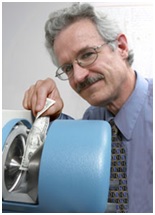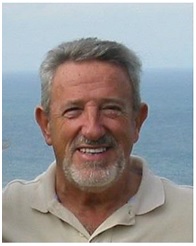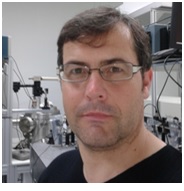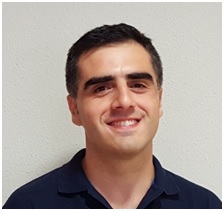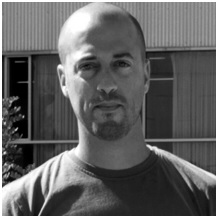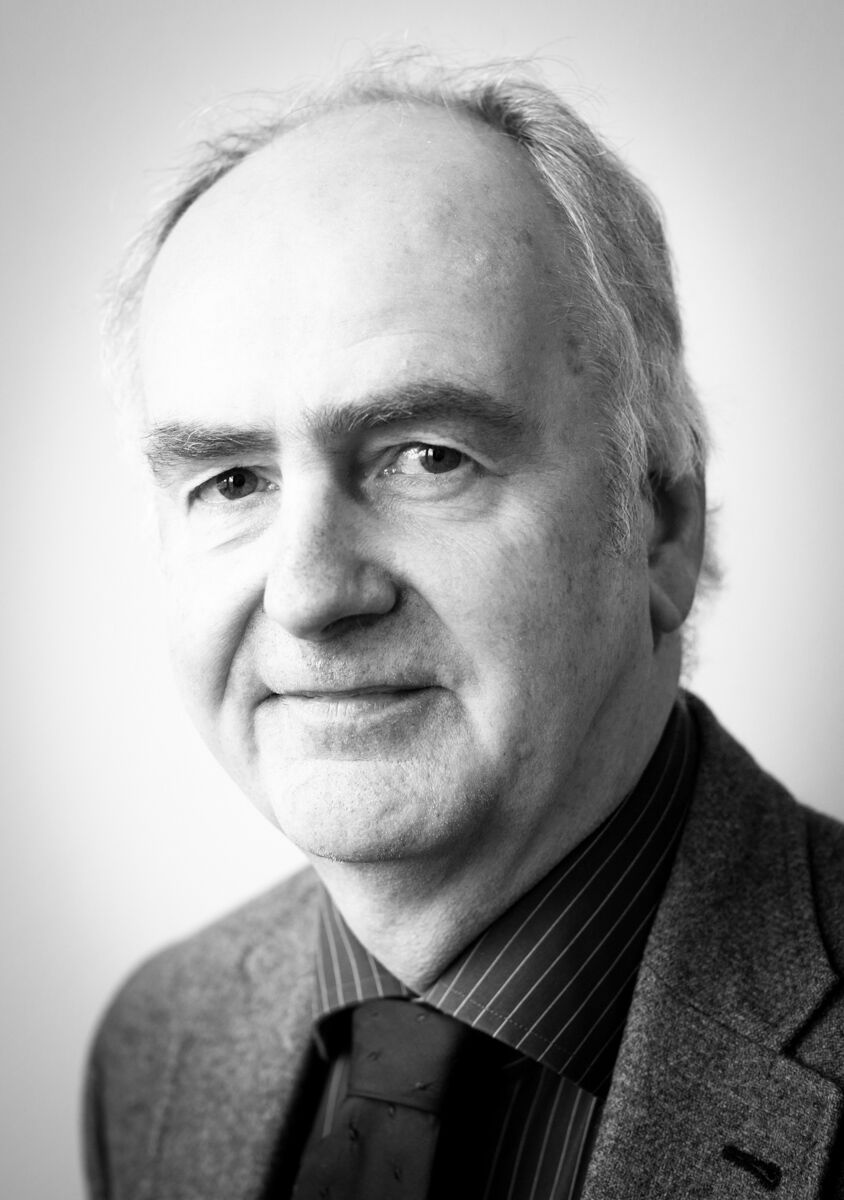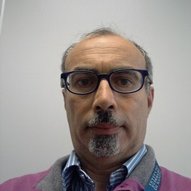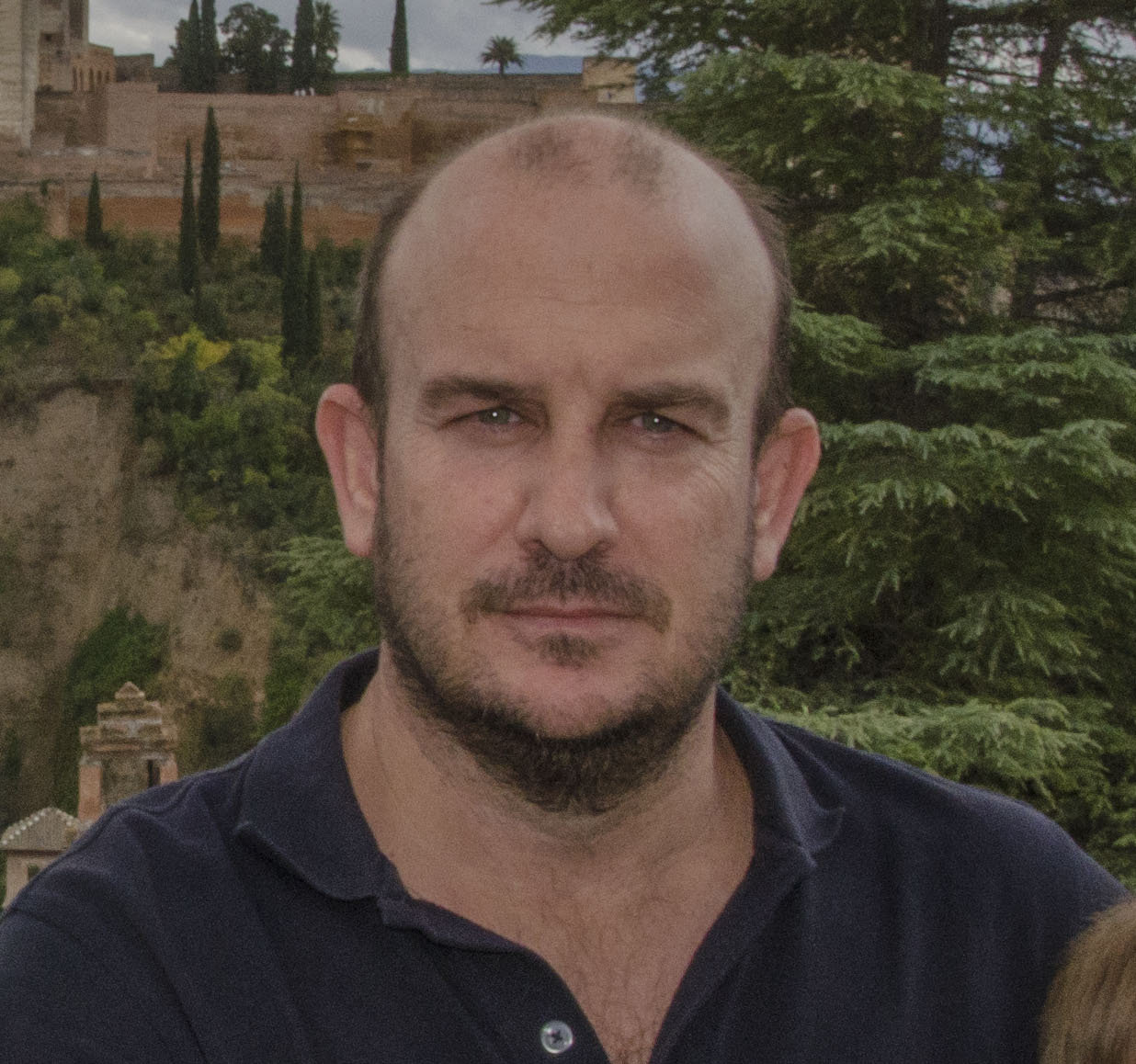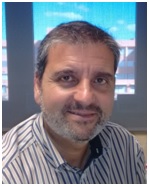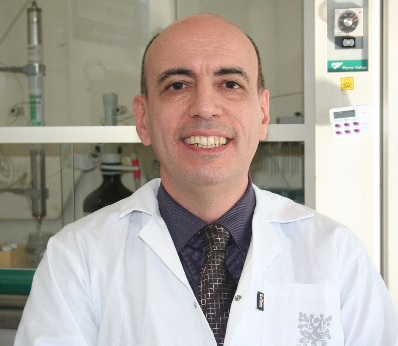Conferenciantes invitados
VIII Reunión de la Sociedad Española de Espectrometría de Masas
CONFERENCIAS PLENARIAS
Dr. Gianluca Giorgi
Associate Professor of Organic Chemistry,
Dept. of Chemistry, University of Siena (Italy)
President MS Division SCI (Italian Chemical Society)
Prof. Giorgi is Ph.D. in Chemistry and his research activities concern identification, structural characterization, isomeric and stereochemical differentiation of organic and bioorganic compounds by using different mass spectrometry based techniques, X-ray crystallography and theoretical methods.
He is a participant in European Community projects concerning education and research and he plays an active role in the organization of international workshops and congresses in the field of mass spectrometry.
He is the author of 128 publications in international journals, 5 book chapters and more than 130 communications to national and international meetings and congresses. He is a referee of international journals of organic chemistry and mass spectrometry.
Since 2008, he has been President of the Division of Mass Spectrometry of the Italian Chemical Society. He is currently the chair of the upcoming International MS conference in Florence 2018 (Italy)
Robert B. (“Chip”) Cody
JEOL USA, Inc.
Robert B. (“Chip”) Cody, B.S. in Chemistry (Roanoke College 1976); Ph.D. in Analytical Chemistry (Purdue University, 1982 with Professor Ben Freiser). From 1982 to 1989 Dr. Cody worked at Nicolet Analytical Instruments (Madison, WI) in the Fourier Transform Mass Spectrometry group as Senior Scientist, Nicolet Fellow and University of Wisconsin Fellow. He has worked at JEOL USA, Inc. in Peabody, MA for the past 25 years and is currently USA Product Manager for Mass Spectrometry.
In his graduate work, Dr. Cody was responsible for developing the trapped-ion tandem-in-time and MSn techniques, laser desorption/Fourier transform ion cyclotron resonance mass spectrometry (FTICR) and an electron collision-induced dissociation technique called “EIEIO”. Over the years, his research has included ion activation techniques, fundamentals of FTICR ion excitation and detection, electron capture ionization, laser desorption, electrospray ionization and applications of time-of-flight mass spectrometry. His present research interests include ambient ionization techniques and the software-assisted interpretation of high-resolution mass spectra of complex mixtures. He holds several patents, is the author or coauthor of numerous articles and book chapters, editor (with Marek Domin) of the book “Ambient Ionization Mass Spectrometry” (published by the Royal Society of Chemistry), developer of the “Mass Mountaineer” software suite and coinventor of the Direct Analysis in Real Time (DART) ion source.
Dr. Cody has been a member of the American Society for Mass Spectrometry (ASMS) since 1978. He was Vice-President for Arrangements for ASMS in 2010 and 2011 and served on the ASMS Sanibel Conference Committee and the ASMS Asilomar Conference Committee. He received the Anachem Award at the 2011 FACSS meeting and is a recipient of a 2012 Purdue Chemistry Distinguished Alumni Award. Dr. Cody is also a member of the Analytical Division of the American Chemical Society. He has served as reviewer for several scientific journals, including JASMS and Analytical Chemistry.
Dr. Alfredo Sanz Medel
Profesor Emérito
Departamento de Química Analítica, Universidad de Oviedo
Alfredo Sanz Medel es Catedrático de Química Analítica en la Universidad de Oviedo desde 1982, tras su post-doct en el Imperial College de Londres y su posterior estancia en Madrid como Profesor Adjunto en el Departamento de Química Analítica de la Universidad Complutense.
Hasta Enero de este año, el tipo de investigación realizado en su Grupo (de 35 miembros) fue de tipo básico: desarrollo de nueva instrumentación (e.j. nuevas fuentes de plasma para MS y nuevos sensores) y también aplicado a la resolución de problemas reales de otros profesionales (e.j. físicos, ingenieros, biólogos o médicos) en colaboraciones multi- e inter- disciplinares mantenidas a lo largo de los casi 40 años de labor docente e investigadora en la Universidad de Oviedo.
Los temas científicos de mayor impacto actual se centran en especiación química y su proyección en aplicaciones novedosas en Biociencia y Biotecnología, particularmente desarrollando nuevas aplicaciones de la bionano tecnología analítica. Una primera idea de la calidad de su actividad en investigación puede inducirse de: Publicaciones internacionales (>650), Índice h (Hirsh)= 53, Tesis dirigidas (>70),
El Profesor Sanz-Medel ha organizado muchas Conferencias Científicas y ha sido distinguido con numerosos premios a su labor analítica, tanto nacionales como internacionales. Entre los premios internacionales podemos citar: EuCheMS (DAC) Robert Kellner European Award (Amberes, Bélgica, 2007), Plasma Winter Conference Award (Zaragoza, España, 2011), EuChMS Lecture Award (Belgrado, Serbia, 2011), Colloquium Spectroscopicum Internationale, CSI 2015 Award (Coimbra, Portugal, 2015). Desde 1989 hasta 1999 fue Presidente del Grupo Espectroquímico de la Real Sociedad Española de Química (RSEQ), semilla de la actual Sociedad Española de Espectroscopía (SEA).
Así mismo conviene citar su intensa actividad pasada como Editor o miembro del Panel de Editores de conocidas revistas analíticas internacionales como: Spectroquimica Acta, Part B (Elsevier, Amsterdam); Journal Analytical Atomic Spectrometry (JAAS) (RSC, Cambridge); Mikrochim. Acta (Springer, Alemania); ICP Information Newsletters (Massachussets, USA); Talanta (Elsevier, Amsterdam). Finalmente, por su relevancia actual, citaremos su condición de Editor de Analytical and Bioanalytical Chemistry (Springer, Heidelberg) en la que la Sociedad Española de Química Analítica (SEQA) es socio propietario de la revista.
CONFERENCIAS INVITADAS
Dr. José Miguel Vadillo
Associate professor
Department of Analytical Chemistry,
University of Málaga
Bs in Biology (U. Navarra, 1992). PhD in Chemistry (U. Málaga, 1999). Doctoral research conducted under supervision of J.J. Laserna. Awarded a doctoral fellowship of the Spanish Ministry of Science (1995-1999). Doctoral stays at Los Alamos National Laboratory (with David Cremers in 1997 and Vahid Majidi/J. Olivares in 1998) and University of Michigan in 1998 (with David Lubman). Recipient of a fellowship of the Royal Society of Chemistry to perform a scientific stay in the Swiss Politechnic Institute in Zurich (ETHZ) with Renato Zenobi. Fullbright Fellow (2000-2002) at Stanford University under supervision of Dick Zare. Recruited under the “Ramón y Cajal” program at the University of Málaga (2002-2007). Assistant Professor at the University of Málaga (2008-2010). Permanent Professor since 2010. Scientific interest include instrumental developments and applied spectroscopy, with spectal emphasis in laser-based methods and mass spectrometry.
Dr. Juan Francisco García Reyes
Profesor Titular
Departamento de Química Analítica,
Universidad de Jaén.
J.F. Garcia Reyes is currently Associate Professor of Analytical Chemistry at the University of Jaen (Spain) since 2010. His research interests includes the development and application of different UHPLC-HRMS methodologies for small-molecule applications such as environmental analysis, food safety testing and forensics, and the use of new ambient and atmospheric pressure ionization methods based on dielectric barrier discharges for mass spectrometric small-molecule applications such as pesticide testing and explosive detection.
Hector Gallart Ayala, PhD
Senior Scientist
Metabolomics Unit at Lausanne University Hospital (CHUV)
Hector Gallart-Ayala obtained his PhD in Analytical Chemistry from the University of Barcelona (Spain) in 2010, where he worked on liquid chromatography – mass spectrometry for food and environmental analysis using both targeted and non-targeted approaches. During three years PostDoc in France at Laboratory for the study of residues and contaminants in food (LABERCA) he began his scientific career in metabolomics. The research was mainly focused on the study of canine mammary cancer and to characterize the effect of endocrine disruptors in human testis using non-targeted and targeted mass spectrometry metabolomics. In February 2015 he joined the Wheelock Lab at Karolinska Institute (Sweden) as a PostDoc to work on metabolomics of pulmonary medicine (U-BIOPRED project) and cancer (T. Helleday Laboratory – Scilifelab). In 2016 he joined SCIEX as a Senior Support Specialist Academia-OMICS and currently he is Senior Scientist in the Metabolomics Unit at University of Lausanne (Switzerland).
Oscar Yanes
V Reunión Nacional de Dioxinas, Furanos y Compuestos Orgánicos Persistentes Relacionados
CONFERENCIAS PLENARIAS
Prof. Dr. Jacob de Boer
Jacob de Boer is Professor in Environmental Chemistry and Toxicology and head of the Department of Environment & Health at the Vrije Universiteit Amsterdam, The Netherlands. He obtained a PhD in analytical chemistry at the Vrije Universiteit. His research group consists of ca. 20 environmental chemists, toxicologists and epidemiologists, five technicians and 14 PhD students. Prof. De Boer has worked for many years on the environmental contamination of polychlorinated biphenyls, flame retardants, perfluorinated compounds and other contaminants. In 1998 he won the Excellent Scientist Award of the Wageningen University. He is an advisor for UNEP and several national research councils, a member of the QUASIMEME Scientific Assessment Group and of the European Scientific Advisory Panel of the CEFIC Long Range Initiative. He has coordinated a number of European research projects and many research projects for other international organisations and industries. He has published 200 peer reviewed articles and 20 book chapters. His H-index is 47 and he belongs to the 1% most cited scientists in the world according to Thomson & Reuter, 2015. He is editor-in-chief of Chemosphere and member of the editorial board of the Handbook of Environmental Chemistry.
Dr. Gianfranco Brambilla
University studies
Doctorate in Veterinary Medicine magna cum laude, granted on February 15, 1985, by the University of Milan “. Education background in biochemistry.
Diplomate in the Control of animal diseases and foodborne zoonoses by the the Istituto Zooprofilattico Sperimentale di Brescia, on September 1986.
Specialization in Veterinary Public Health on September 1989 by the University of Milan (habilitation to serve as civil servant within the Health National System).
Diplomate as Veterinary Toxicologist by The European Association of Veterinary Pharmacology and Toxicology on December 2001.
National habilitation as Professor of Veterinary Toxicology (2014-2018).
Employments
Currently employed at the Istituto Superiore di Sanità (ISS, Italian National Institute of Health), in Rome, as Research Director of the Department Food Safety and Nutrition.
From Novenber 2004 to July 2015 employed at the Environment and Health dept, of ISS, Unit Toxicological Chemistry/POPs.
From March 1991 to October 2004 employed at the Unit of Animal Nutrition of the ISS Laboratory of Veterinary Medicine. Appointed as Unit Head on 1997.
Research interests/expertise
Prevention and control of persistent toxic organic chemicals (PTS/POPs) such as PCBs, “dioxins” (PCDDs and PCDFs), BFRs, PFASs, along the feed and food chains.
Evaluation of farmed and wild fish exposure to chemicals; risk assessment/management; evaluation of animal welfare and identification of the biomarkers of exposure; chemobiokinetics; environmental chemistry and toxicology; food safety.
Environmental fate of veterinary drugs.
Chemical emergencies (the 1999 Belgian food contamination; the 2008 Italian buffalo milk contamination) dealt with in association with occurrence in the environment and/or in food of PTS/POPs.
Overview of selected activities
Work Package leader in the FP7 EU project PerFOOD (2009-2013) for the assessment of Perfluorinated Compounds in the Diet.
Scientific expert appointed by European Commission – DG Research in the evaluation of scientific projects within the FP6 programme (2006 – 2009).
Scientific Expert appointed by EFSA– working groups “methylmercury in feedingstuffs”, “ Nitrite in feedingstuffs”, 90-day trials for GM and Novel foods/feeds ) (2006–2010).
Publications, reports, and opinions
Over 100 peer-reviewed international scientific articles. Scopus Author ID: 7102719757
Heidi Fiedler
Heidelore (“Heidi”) Fiedler is a professor of chemistry at Örebro University, Sweden. She joint the MTM Research Centre of the School of Science and Technology in July 2015. Before going to Sweden, she spent 15 years at the United Nations Environment Programme (UNEP) in Geneva, Switzerland, earlier assignments were as senior researcher at the University of Bayreuth (Germany) and the Bavarian Institute for Waste Research (BIfA, Augsburg, Germany). Since November 2015, she is also a distinguished visiting professor at Tsinghua University in Beijing, China. Her main focus of research is in the formation, releases and fate or persistent organic pollutants (POPs), especially on chlorinated compounds but more recently also on fluorinated POPs. She also coordinates interlaboratory assessments and undertakes substantive teaching and capacity building activities.
CONFERENCIAS INVITADAS
Juan Antonio Conesa
Juan A. Conesa es catedrático de Ingeniería Química en la Universidad de Alicante. Durante los últimos 20 años viene desarrollando su labor investigadora en temas relacionados con la descomposición térmica de residuos, tanto en pirólisis como en combustión. En el año 2000, junto a su grupo de investigación, puso en marcha las técnicas analíticas relacionadas con dioxinas y furanos. Desde entonces el grupo de investigación trabaja sobre el análisis y la formación y destrucción de estos compuestos en sistemas de descomposición térmica. Es autor de más de 150 artículos científicos y ha dirigido alrededor de 30 proyectos de investigación y 10 tesis en el ámbito de la recuperación de residuos. Desde 2015 es el director del grupo de investigación “Residuos, Energía, Medio Ambiente y Nanotecnología (REMAN)” de la Universidad de Alicante.
Ximo Beltran
Joaquin Beltran is Assistant Professor in the Physical and Analytical Chemistry department and member of the Research Institute of Pesticides and Water of the University Jaume I. His research is focused on the use of chromatography/mass spectrometry techniques (GC-MS) in last generation instruments, with special emphasis on high-resolution (HRMS) and hyphenated techniques for the determination of organic compounds in environmental, food and biological fields. He has been coordinating the Master in Applied Chromatographic Techniques, as well as teaching the GC-MS module.
Joan O. Grimalt
Joan O. Grimalt. Nacido en Palma (Mallorca). Profesor de Investigación del Consejo Superior de Investigaciones Científicas (CSIC; desde 1992). Director del Instituto de Diagnóstico Ambiental y Estudios del Agua (IDÆA-CSIC) y del Centro de Investigación y Desarrollo (CID-CSIC). Doctor en Ciencias Químicas por la Universidad Autónoma de Barcelona (1983). Estancias postdoctorales en la Oregon State University (Corvallis, USA, 1983) y la Universidad de Bristol (UK, 1985). Geoquímico Orgánico Ambiental. Carrera científica dedicada al estudio de los compuestos orgánicos naturales y antropogénicos como marcadores del cambio climático y del estado de salud de los ecosistemas y organismos (incluyendo los humanos). Hasta el momento presente, publicación de más de 650 artículos científicos, la mayoría de ellos en revistas internacionales que han sido citados más de 18000 veces. Algunos de estos artículos se han publicado en Science, Nature y Lancet. Supervision de 45 tesis doctorales. Participación en más de 102 proyectos de investigación, unos 40 de ellos financiados por la Unión Europea. Coordinación de 41 de ellos. Premio Ciudad de Barcelona a la Investigación Científica (2000), Premio a la Investigación Ambiental del Instituto de Estudios Catalanes (2001), Premio Rey Jaime I de Protección de la Naturaleza (Generalitat Valenciana, 2005). Premio al Desarrollo Científico y Tecnológico, con mención honorable de la Agencia de Protección Ambiental de los Estados Unidos (2011). Índice H = 68. Más información en http://www.cid.csic.es/homes/grimalt



